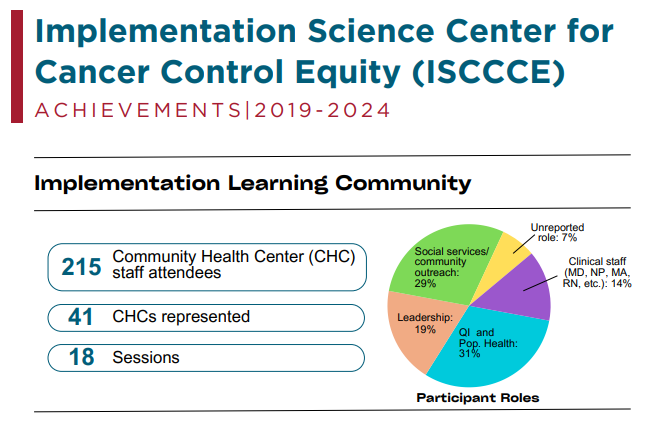CANCER CARE EQUITY
There are significant cancer-related inequities – in diagnosis, treatment and mortality – among traditionally marginalized populations, including: those who are homeless, have a mental illness, live in poverty, or belong to a racial or ethnic minority. Health equity data shows significant disparities in cancer status in the communities where The Kraft Center focuses its work.
In 2019, The Kraft Center, in partnership with the Harvard T.H. Chan School of Public Health and Massachusetts League of Community Health Centers, received a 5-year grant from the National Cancer Institute (NCI) to create The Implementation Science Center for Cancer Control Equity (ISCCCE). This statewide center allows for rapid-cycle testing of innovative approaches to cancer prevention and control in settings that serve populations with health disparities. Community health centers across Massachusetts are participating in the program to increase implementation science in community health settings and enable a range of studies on the adoption and implementation of cancer care equity strategies.
Over five years, ISCCCE had over 50 investigators and research staff, 25+ trainees, 70+ community health center (CHC) leaders and staff in key roles on pilot projects, and 200+ CHC participants attended our Implementation Learning Community (ILC), with role ranging from leadership to quality improvement and population health to community health workers and all types of clinicians. In 2024, The Kraft Center, HSPH, and Mass League established the Massachusetts Center for Advancing Cancer Control Engaged Research Through Transformative Solutions (Mass ACCERT) with a grant from the National Institutes of Health (NIH) to continue facilitating learning communities and supporting community health centers in implementation science that improves cancer prevention and control.


